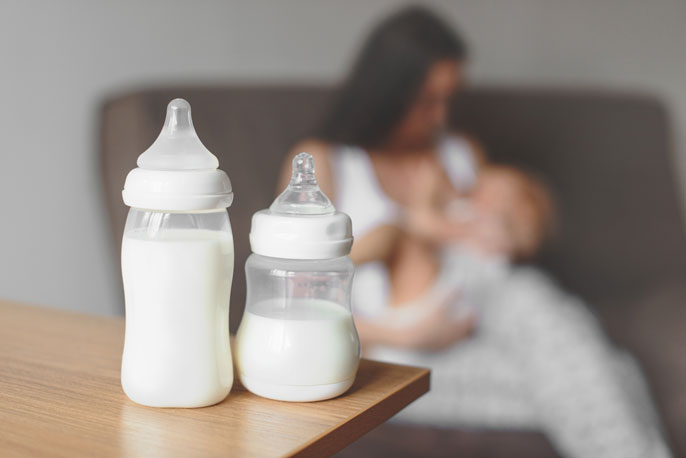While mothers often assume they have a choice between breastfeeding or formula when it comes to feeding their newborn babies, a new option has been growing in popularity. Many new parents are turning to donor breast milk to nourish their little ones.
There is a range of reasons that people may be looking for a breastfeeding alternative. They may struggle with supply, mental health, or managing other dependents. Other mothers may be concerned about a certain medication’s impact on their baby or may simply be returning to work. In families where the new addition has been adopted or born to a surrogate, there may not be anyone lactating who can feed the newborn.
Whatever your circumstances, if you are considering donor breast milk, here are five essential facts to keep in mind:
Donor Breast Milk Delivers Antibodies and Prebiotics
While baby formula is an excellent substitute for some families, even the very best infant formula cannot replicate the antibodies, prebiotics, and fatty acids that breast milk provides. Because breast milk is an unrivaled complete form of nutrition, the World Health Organisation recommends that babies be fed breast milk exclusively until they are six months old and alongside a healthy diet for “up to two years and beyond.”
Donor Breast Milk can be Life-Saving for Premature Babies
Premature babies are at high risk of infections such as necrotizing enterocolitis or NEC, which occurs when the tissue around the colon becomes inflamed. Formula-fed babies are significantly more likely to suffer from NEC than breastfed babies, and prematurity adds to this risk. Because baby formula is the quickest method to ensure newborn babies gain weight, there is often a misconception that this is the best option for infants born prematurely. However, it’s worth talking to your primary medical caregiver about the potential benefits of donor milk.
More Global Standards are Needed
Given the health benefits of breast milk, several organizations are working to make human milk banks available to all, including the Human Milk Foundation and the International Milk Banking Initiative (IMBI). These organizations have encountered challenges scaling up due to a lack of global policies and standards. Human breast milk is not currently classified for regulatory purposes as a food or medicine. This means there is limited guidance, governance, and legislation available.
You Should Avoid Unpasteurized Breast Milk
Many of us have friends, family members, or other contacts who are breastfeeding. While it may be tempting to come to an informal arrangement with someone you know, it can be dangerous. Freshly expressed milk from a woman’s breast is unpasteurized, meaning that it has not been treated with heat to remove any viruses, bacteria, or harmful chemicals that might be passed on to your child. Human Milk Banks will screen the milk, test it in a laboratory, and ensure it is safe.
There Isn’t Enough Donor Breast Milk in the World
Demand for donor breast milk has soared in recent years, even more so since the coronavirus pandemic outbreak. There isn’t currently sufficient supply to meet the demand. However, as the practice of donating milk and using milk banks becomes more widely known and accepted, there is hope that the supply will increase to meet this demand.
Being a new parent is challenging, and we need to do more to reduce stigma and increase education so that the breadth of options is understood and made available to all. Breastfeeding vs. formula feeding has always been a delicate subject, but it is vital to note that donor milk is a third viable option.
